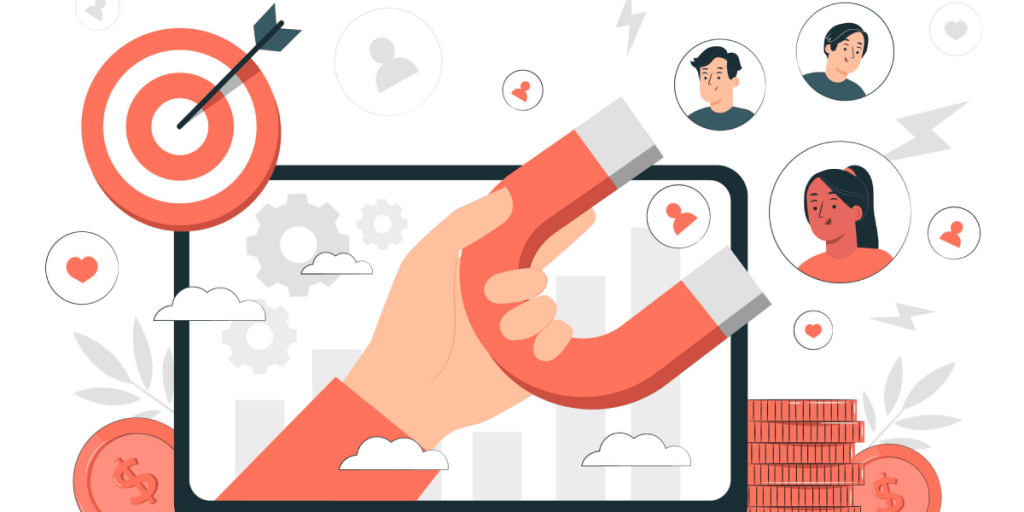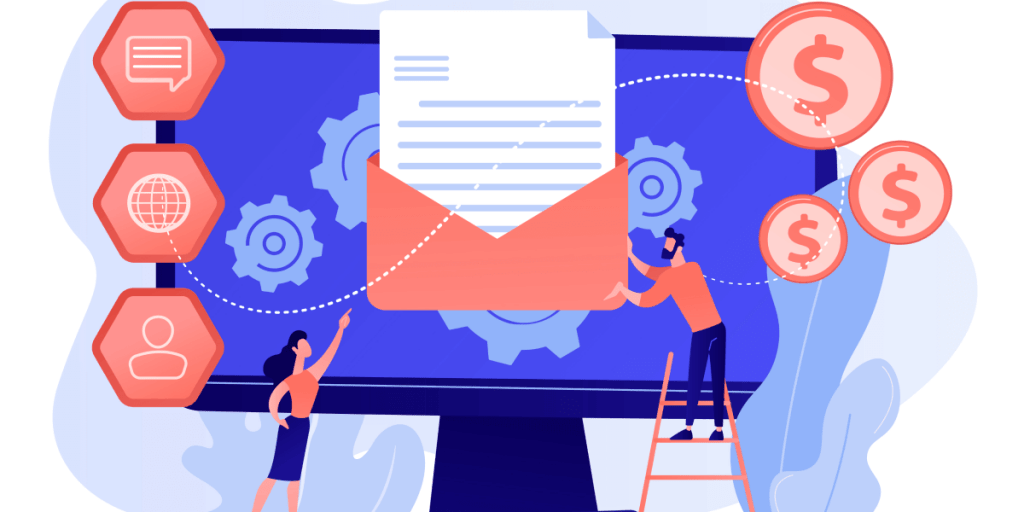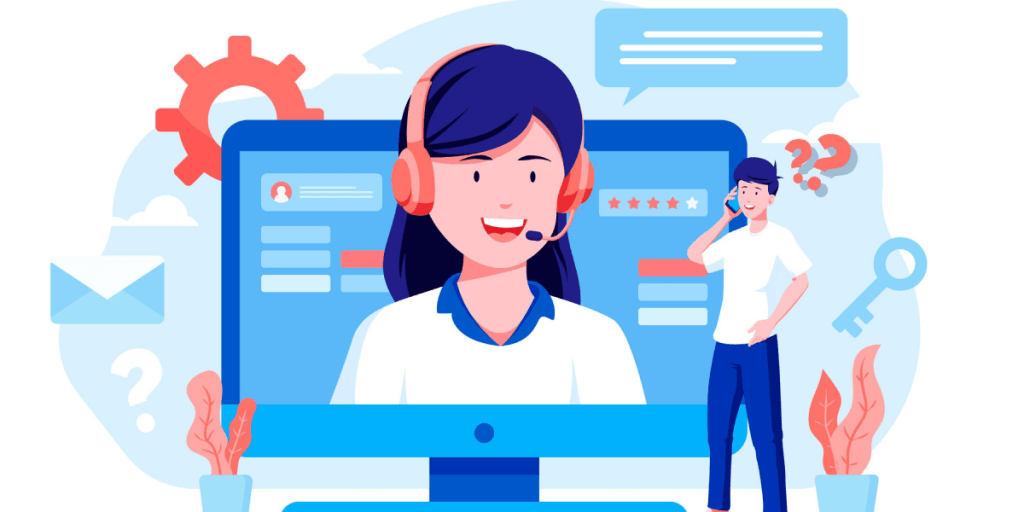What Is CRM Experience and Why Does it Matter Today?
CRM stands for Customer Relationship Management. A CRM software solution is helping businesses, no matter their size or industry, manage their customer relationships. CRM experience describes a company’s knowledge, abilities, and skills about CRM software. The purpose of a CRM is to improve the company’s sales performance and increase revenue. The goal of creating a great CRM customer experience is to facilitate the interaction between clients and the company to increase customer satisfaction and customer loyalty.
When you offer a poor customer experience, they will go to your competition in a blink of an eye. These elements will create miserable interaction with customers, from irrelevant email marketing and unfriendly customer service to insistent phone calls and aggressive selling techniques.
We wrote this article to help you better understand what CRM experience is and how it can help your business deliver a flawless customer experience. Learn how to provide relevant and qualitative communication, highly-effective marketing campaigns, successful retention campaigns and revamp your customer service.
If you are a business owner of a small company and think that CRM software will not help you, we strongly advise you to think twice. Small businesses using a CRM solution build stronger customer relationships and are succeeding in business more than those who don’t rely on a CRM. More than that, based on Forrester Research, companies are spending 1.2 trillion dollars annually on CRM solutions. Don’t get left behind, and follow along for valuable information that might help your business grow.
What Is CRM Experience?

Companies use customer relationship management systems for customer interaction and client management. CRM gives you access to customer data such as interests, preferences, purchase history, customer feedback and many more. This system will help you with client segmentation and customer profiling, allowing you to better customize your products, marketing efforts, and services to your end user’s needs. By doing so, you can build a stronger relationship with customers, which will help you grow your profits.
CRM experience is a decisive factor in business success. An enjoyable and positive experience will reinforce customer loyalty, increase the customer life cycle, lower the customer acquisition costs in the long term, sustain user satisfaction, and the chances of potential customers running to your competition will decrease every day. A positive customer experience delivered through a customer relationship management system will definitely offer you a competitive dominance that will help your business and your customer base.
Moreover, your sales team, marketing teams, and customer service teams can use the information gathered in your CRM to improve your services and overall client experience. Collecting data on your client’s age, location, hobbies, interests, online behaviours, etc. and separating them into customer segments and customer profiles will help you craft more cost-efficient marketing and sales campaigns intended for a particular target audience. The insights into your customer needs and online behaviour will give you the right direction on how and what information on your products or services to present to the right customer groups.
Customer experience management is a powerful marketing and sales tool that helps you make your business thrive. 74% of the companies that use CRM systems have reported that their relationships with customers are stronger. Excellent results can be achieved when your sales representatives and marketing department target your promotions to the right public. Giving your target audience exactly what it wants at the right time will increase customer satisfaction. Therefore, you will increase your customer retention rate and grow your sales.
The CRM market grows by approximately 12% every year, and cloud-based CRM system usage has increased from 15% in 2010 to 97% in 2020. Statistics show that CRM is a top-rated tool among businesses that want to expand. With a single platform, you can help both the front end sales that interact with customers directly and the back end employees such as marketing managers, sales reps, customer relations managers, IT and other internal departments. Giving them access to customer data, contact information, customer segments, and profile will facilitate data-driven decisions that bring noticeable results.
Why Is CRM Important to Businesses Today?

Multiple factors make a CRM platform crucial for businesses today, such as lack of sales, still business growth, customer loss, etc. Suppose you have a data-driven strategy in place to store and intelligently manage customer data. In that case, a CRM can be a ground-breaking tool that will help increase sales leads and get the attention of prospective customers. More than that, your employees are more organized, your departments will have better communication, identify more sales opportunities, the sales process becomes easier and faster.
We are going to dive deeper into the reasons why you need CRM software in today’s market:
- Identify sales opportunities – especially when you get into a new market or launch new products- sales can initially struggle. A CRM system it’s a great contact management tool that you can use to sort, analyze, and figure out your most qualified leads. Your sales team can focus on a fast closing or provide many accurate answers in their interactions with customers. More than that, the customer service team has all the details they need about the clients to facilitate the upselling or cross-selling process.
- Faster customer profiling – when you use a CRM, all your client’s data points are in one place, and you get an insight into your sales team activities. When you don’t have software to store all data about your clients, you have to plan face to face status meetings with your salespeople, which will take them out of the field and decrease sales productivity in the long term.
- Accurate and fast answers to customer requests – clients will always have questions and requests no matter the business type. When your customer retention rate is decreasing, you might have another look at your customer service agents stats. Maybe you have to reduce the average response time. You should identify if your employees are proactive when working with clients, etc. A CRM is a unified customer experience platform where your employees can provide marvellous service. You can also use chatbots to handle low priority urgencies, high-volume questions and transfer users to suitable agents for digital assistants.

- Have your marketing and sales departments collaborate – reduce the collaborative effort by having all types of audience info in one place. Because your internal departments are not communicating, resulting in customers pain points. Your clients might have to repeat themselves, and they don’t get what your employees promised them. None of your departments knows the client’s purchase history or where it is in the sales funnel. A smooth collaboration between your departments, such as sales, marketing, managers, accounting, logistics, etc., will increase employee productivity and customer lifecycle. All your employees can access, operate and fill in data. They can share issues, insights, purchase history, the status of the leads, etc. By having your departments make a collaborative effort, the company will get cohesive audience info.
- Know your high-value accounts – you can identify your best clients and make sure they feel appreciated by nurturing them into becoming loyal customers and providing them with the appropriate incentives.
- Keep your contacts up to date – allow marketing and sales teams to personalize their message. Keep in touch with your clients and update their profiles, so you maintain and improve your relationship with them. Make sure you remove duplicates and keep your system clean and tidy.
- Fast reporting and accurate forecasting – cut down the time you put in to create and download the spreadsheet reports. Having a CRM will keep all data centralized in one place that is easily accessible and updated in real-time. More than that, your forecasting will become more accurate as you remove any inconsistency from manual reporting.
How Does CRM Help Customer Experience?

CRM software helps improve customer experience in various ways. Because all audience info is gathered in one place, businesses can adjust their practices to better fit the client’s needs. As we mentioned before, a CRM is a great idea, no matter your business size.
Let’s explore together how you can improve customer experience through a CRM.
- Stay in contact with your current and future clients. A great CRM platform will let you send regular emails to your audience. You can announce the launch of new products, upcoming promotions, special offers or details about your business that interest your clients. More than that, you can track the customer journey, activities, conversations with the contact centre agents, purchase history, birthdays, locations, etc. This way, you can target a specific group of clients with the right message.
- Send customized communications. Your CRM will help you customize the messages you send to them as you contact your clients. According to Genesys’ study, 62% of consumers will open an email because of a personalized subject line. A tailored communication will help your business build a stronger connection with your customers and improve their perspective over your company.
- Offer a consistent customer experience. A CRM can help you provide a consistent customer experience through messages and support. Client inquires can be answered promptly and send automatic emails when customer surveys are filled out online. Your website should contain the same information that your support agents offer to ensure a consistent message across multiple channels. Consistency improves brand reputation, customer loyalty and customer satisfaction.
- Access all data in one place. CRM is a centralized database of all the information about your clients or prospects. If someone wants to get in touch with you, they can call, email or contact your company through social media channels. The best part of a CRM system is that every interaction with users is stored in one place, no matter the communication channel and your support staff knows exactly what your client’s needs are. Therefore, you contribute to a positive user experience.
- Have an in-depth overview of your clients. In a CRM, you will find information about purchases, products or services of interest based on their website searches or social media channels. These details can help your team set up up-selling or cross-selling strategies and product offers, that match customer preferences.
- Manage requests on social media. Social media channels are a powerful data collection tool, and more than 65% of users use social media for customer service. You can collect and centralize your CRM service requests and company mentions from all your social media accounts in one database. This way, you can adequately handle every request without missing an inquiry, and you can give all the attention it needs.
How Can We Help You?

Our experience of more than 15 years in software development has offered us the chance of handling projects from various industries for medium and large companies. Our advice for small businesses that do not plan to expand quickly is to choose already-built software. Read our articles about the advantages of a custom CRM platform and why off-the-shelf CRM is a bad idea for large businesses. These two articles will offer you valuable information about what type of software to choose for your company.
Custom CRM development is one of our strongest suits. As we mentioned before, we built CRM systems for various industries, from fashion eCommerce and real estate to medical and education disciplines. We can help you develop the right software from the start that includes features based on your industry requirements that is scalable and completely customized for your business goals and needs. Check out our portfolio to better understand how we approach each project, check out our reviews from current and previous partners, and if you think we are a fit for your development project, contact us today!
Frequently Asked Questions
You can send out personalized messages about your products and services that fit your customer’s needs.
You know exactly where your customers are on the sales funnel, and your sales team can approach them in the right way.
All data is available for your team members in one place. They can gather insights and work together to provide excellent customer-centric experiences with consistent messages.
Because it will help you understand your customer’s pain points and improve how you approach them. This will lead to enhanced sales increased customer retention and satisfaction.